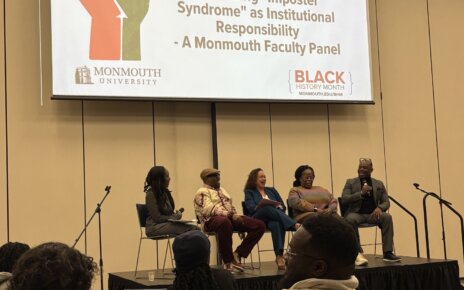A recent survey found that 50 percent of millennials and 75 percent of Generation Z (Gen Z) respondents have quit a job due to mental health reasons, according to Mind Share Partners.
Mind Share Partners is a nonprofit that works with companies to improve mental health resources and conducted a study to examine the effects of mental health on employees.
According to the findings, published in Harvard Business Review, 60 percent of people experienced symptoms of mental health.
Andrew Lee, Psy.D., Director of Counseling and Psychological Services, explained that national data on mental health issues for Gen Z student, such as anxiety and depression, have been increasing for some time. “I wonder if [the survey’s] statistic is more a function of the ever-increasing mental health needs of the Gen Z generation in general, and less a reflection of difficulties working for companies.”
Furthermore, the stigma regarding mental health issues has decreased, which allows members of the millennial and Gen Z generations greater access to mental health services along with a greater willingness to discuss these types of issues, Lee said.
Brittany Macaluso, a junior social work student, agreed and said, “People are more comfortable talking about mental health issues because there’s less of a stigma. It’s a positive shift that people are prioritizing their mental well-being.”
Still, Lee explained that certain work environment can play a role in mental health issues. Specifically, that working with more people introduces a greater possibility for misunderstandings and conflict, which could increase one’s experience of mental health issues.
Jefferey Mass, Assistant Director of Career Services, credited the interplay between corporations and millennials with worsening mental health struggles.
He said, “While some modern-day corporations might value profit over the individual, millennials would rather have a flexible schedule than a traditional nine to five work environment. This could play an integral role with one’s mental health especially with extended hours and conflict in the workplace.”
Conversely, Lee viewed divergent career expectations to be a reason for leaving jobs that is separate from mental health issues. “People are multifaceted individuals and choose to leave jobs for a variety of reasons, both personal and job-related. For example, I could argue that Gen Z’s are more likely to seek out occupational and career choices that allow for greater entrepreneurial freedom,” he said.
Mass added that millennials are exposed to peer success 24/7 via social media outlets, which can lead to unrealistic career expectations. In reality, careers are difficult to build out of college without proper job search strategies and rejections are unavoidable, so if millennials’ viewpoints surpass their realities, they’ll become disappointed. This self-doubt could occur when rejection sets in from an employer maybe regarding an internship or full-time position.
Jesse Mingalone, a junior psychology student, also attributed social media to declining mental health in the work environment. “[Millennials and Gen Z] are not as sociable as other generations because their phones offer them chances at instant gratification in relationships, and when they don’t experience this at work, they leave,” said Mingalone.
Dissimilarly, Ray Romanski, a communication graduate student and Club and Greek Editor, said, “A lot of the older generations feel that millennials are lazy and entitled, meanwhile we don’t have jobs, we’re overworked and underpaid. I think it’s the fact that you’re given a job, minimum wage, without benefits and you can’t live off it.”
He continued, “I had two jobs, and I’m in grad school. I had to prioritize. I definitely think that extra job impacted my mental health. There were days were I was so burnt out and stressed out that I couldn’t really function.”
Aside from career expectations, the demographic of a corporation can impact an employee’s mental state. “Race, ethnicity and gender are a few factors that play a role in exacerbating many psychological and emotional issues, especially in situations involving interpersonal relationships, such as work,” Lee said.
“Moreover, when an individual feels that they are the only one, or one of only a few of a particular group in a setting, it makes it even more difficult, given the potential sense of isolation and relational distance that can occur,” he said.
There are many factors that play into mental health in the workforce. Mass urges that “Companies need to adopt additional training and informational campaigns, so signs of depression are easier to detect.”
IMAGE TAKEN by Megan Ruggles



